Project Leader: Dr Elaine Khoo, (Senior Research Fellow, Division of Education, University of Waikato)
Project Team:
- Professor Bronwen Cowie (Associate Dean (Research), Division of Education, University of Waikato)
- Loryn Rogers (Innovation Manager, Hamilton City Libraries)
- Van Kilburn (Whakaahu/Programmes Learning Leader, Hamilton City Libraries)
- Aaron Martin (Whakaahu / Innovation Librarian, Hamilton City Libraries)
- Professor Martin Ebner (Adjunct Professor of Media Informatics & Head of Educational Technology Department, Graz University of Technology, Austria)
Project Dates: Mid February 2020 to 31 January 2021
Partnerships: University of Waikato and Hamilton City Libraries.
Funding: 2020 Unlocking Curious Minds (UCM) Fund administered by the Ministry of Business, Innovation and Employment (MBIE).
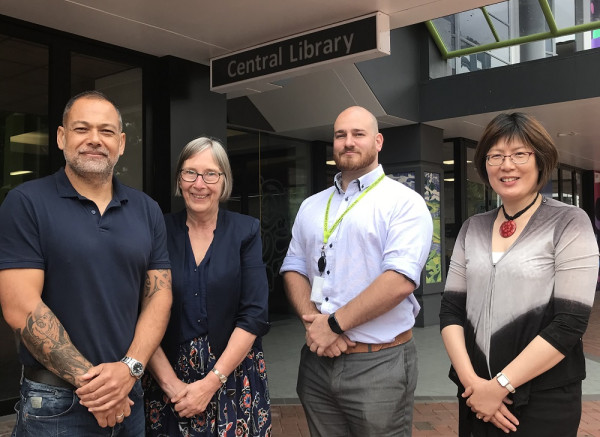
(L-R): Aaron Martin – Hamilton City Libraries, Professor Bronwen Cowie – University of Waikato, Van Kilburn – Hamilton City Libraries, and Dr Elaine Khoo – University of Waikato
Project Background
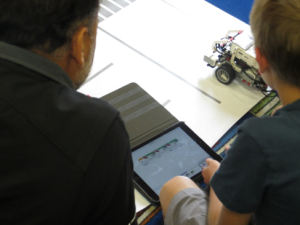 Makerspaces engage children creatively and foster their science learning through experiential, exploratory and collaborative learning experiences. This collaborative project will enhance primary-aged children’s (8–12 years) access to and engagement with STEM (Science, Technology, Engineering, and Mathematics) ideas and skills through an after-school public library mobile makerspace programme. Hamilton City Libraries (Libraries) established its mobile makerspace programme (the LAB- Libraries' mobile makerspace) based on purchased and donated resources such as Lego Mindstorms with iPads for coding, and a range of science experiments and electronics kits in 2017.
Makerspaces engage children creatively and foster their science learning through experiential, exploratory and collaborative learning experiences. This collaborative project will enhance primary-aged children’s (8–12 years) access to and engagement with STEM (Science, Technology, Engineering, and Mathematics) ideas and skills through an after-school public library mobile makerspace programme. Hamilton City Libraries (Libraries) established its mobile makerspace programme (the LAB- Libraries' mobile makerspace) based on purchased and donated resources such as Lego Mindstorms with iPads for coding, and a range of science experiments and electronics kits in 2017.
The LAB is a free weekly programme rotating around the Library’s six community libraries and three community centres during the school term. The Library is keen to further develop the LAB to enhance children’s engagement with, robotics and science ideas, so they develop the skills to solve problems, think creatively, and develop innovative ideas.
In order to promote children's STEM engagement, this project seeks to strengthen the existing LAB programme and develop library staff capacity who will be facilitating the programme (maker educators). It will design and implement a makerspace curriculum and maker educator programme in support of children's learning, including Māori children from lower socioeconomic areas, within a library STEM-based mobile makerspace.
This project has three aims:
- Design, develop and implement a makerspace curriculum and learning resources in support of primary-aged children's learning through making within Libraries’ STEM-based mobile makerspace programme to widen children’s access to and participation in STEM through semi-formal, experiential, exploratory and collaborative activities.
Learning through making in after-school STEM-rich makerspaces engages children in the use of scientific and technical tools and process in creative and playful ways, fostering important skills such as exploration, questioning, problem-solving, critical thinking, perseverance and self-directed learning through open-ended tasks. This promotes children’s agency as active users and producers of science-based ideas to participate in future STEM activities and careers.
- Design, develop and implement a maker educator professional learning programme to enhance library staff’ and volunteers’ teaching capability (maker pedagogies) and STEM content.
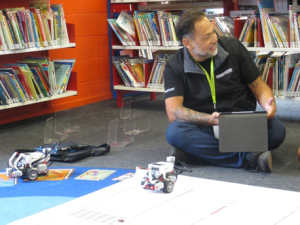 Effectively extending public library outreach to STEM through makerspaces requires a significant expansion of library staff roles to undertake the role of maker educator for makerspace programmes. Most libraries’ maker educators have little or no formal professional learning support in STEM-based content and pedagogies. Research on maker educator learning emphasises urgency in preparing educators to understand effective teaching/facilitation strategies associated with making (maker pedagogies), such as modelling, asking questions, collaborative play, and scaffolding explanations, if children are to gain wider benefits from the STEM-based learning activities. The LAB programme currently has no professional development support for library staff or volunteers who undertake maker educator roles.
Effectively extending public library outreach to STEM through makerspaces requires a significant expansion of library staff roles to undertake the role of maker educator for makerspace programmes. Most libraries’ maker educators have little or no formal professional learning support in STEM-based content and pedagogies. Research on maker educator learning emphasises urgency in preparing educators to understand effective teaching/facilitation strategies associated with making (maker pedagogies), such as modelling, asking questions, collaborative play, and scaffolding explanations, if children are to gain wider benefits from the STEM-based learning activities. The LAB programme currently has no professional development support for library staff or volunteers who undertake maker educator roles.
- Develop a digital resource containing a makerspace curriculum and teaching-learning resource for other NZ maker educators who might wish to work in similar settings.
This collaborative project between science education, digital and computer-science experts, and library maker educators will adopt a three-cycle workshop development and refinement process to enhance maker educator teaching capability and children’s learning. A design-based research cycle will run in parallel with the workshops to gather participants’ feedback and analyse data on the impact of the approach for promoting interest and engagement in, and building knowledge about science, coding, and wider applications of technology. The findings will inform successive cycles of refinements. The digital resource will be shared with staff from other local and regional libraries to inform their work with children in their areas.
Why is this research important
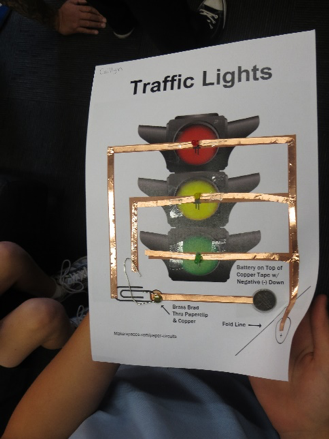 Our project through the public library is innovative in its aim of strengthening the development of a mobile makerspace to reach children in varied community settings, including Māori children in lower income areas who have limited access to the Library and STEM activities. Bringing the library to the community will change underserved communities’ preconceived notions about libraries being ‘just a place with books’ to them being spaces where interesting learning opportunities can occur. Mobile makerspaces can facilitate informal and creative STEM learning opportunities and connections between home, school, and community contexts, and they allow maker educators and children to share knowledge and skills. The nine mobile makerspace locations span Hamilton city from central-city to suburban including lower socio-economic areas.
Our project through the public library is innovative in its aim of strengthening the development of a mobile makerspace to reach children in varied community settings, including Māori children in lower income areas who have limited access to the Library and STEM activities. Bringing the library to the community will change underserved communities’ preconceived notions about libraries being ‘just a place with books’ to them being spaces where interesting learning opportunities can occur. Mobile makerspaces can facilitate informal and creative STEM learning opportunities and connections between home, school, and community contexts, and they allow maker educators and children to share knowledge and skills. The nine mobile makerspace locations span Hamilton city from central-city to suburban including lower socio-economic areas.
The refined makerspace curriculum will ensure a variety of activities focused on promoting science, coding, and robotics skills is available during each makerspace session and are offered in a culturally relevant, engaging, open-ended and interesting ways.
The maker educator workshops go beyond a 'one-time workshop' and focus on supporting continuous, authentic professional learning, building skills, practice facilitation strategies and understanding of when and how to encourage participation in makerspaces. It will ensure that maker educators are able to scaffold children’s thinking, problem solving and learning beyond what they might achieve through informal and unstructured tinkering. No NZ-based maker educator programme currently exists. A limited range of maker education resources exist but are mostly overseas web-based resources and focused on the technical content of STEM-based projects rather than pedagogically effective ways to facilitate children’s STEM learning.
In line with widening children’s access to STEM, this project is relevant and strategic. Libraries have extended their mobile makerspace to a permanent modern space in November 2019. Located at the Hamilton Central Library, the permanent makerspace, known as Auaha, is open for free access to the public and focuses on STEM learning and creativity. Developing and strengthening the Libraries’ maker educator programme and mobile makerspace curriculum will enable a pool of effective maker educators equipped with relevant maker pedagogies to be expanded to other library/community settings.
How or who could this research help to inform and why?
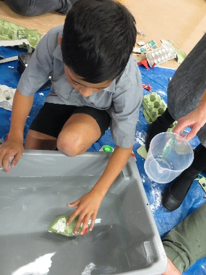 This research will help to inform current and future public and community educational initiatives to foster children’s engagement with STEM in semi-formal accessible learning contexts such as public library mobile makerspaces. It will contribute overall understandings of the role of maker educators and makerspaces as contributors to the wider STEM learning ecosystem in New Zealand.
This research will help to inform current and future public and community educational initiatives to foster children’s engagement with STEM in semi-formal accessible learning contexts such as public library mobile makerspaces. It will contribute overall understandings of the role of maker educators and makerspaces as contributors to the wider STEM learning ecosystem in New Zealand.
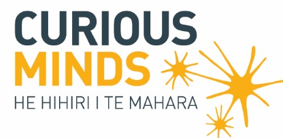

Reports
UCM Evaluation Report: City of the future: Final (PDF)
News
- Full STEAM ahead Embracing hands-on learning
By Education Gazette editors
ISSUE: VOLUME 99, NUMBER 7
Published 18 May 2020 - New research says makerspaces help develop students’ STEM interest and skills
By EducationHQ News Team
Published February 17, 2020 - Learning through making as an education game changer
By The University of Waikato
Published March 9, 2020
